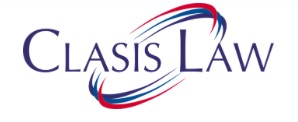18 August 2020
On 5th June, 2020, the President of India promulgated the much awaited ordinance, the Insolvency and Bankruptcy Code (Amendment) Ordinance, 2020 ("Ordinance"), which has suspended the initiation of fresh insolvency proceedings against debtor companies for a period of 6 (six) months with the provision to extend this suspension period for up to a maximum of 1 (one) year.
The preamble of the Ordinance suggests that the intent of the Ordinance is, amongst others, to:
(a) prevent companies, which are experiencing distress on account of the COVID-19 pandemic, from being pushed into insolvency proceedings, and
(b) exclude defaults arising on account of the COVID-19 pandemic for the purpose of insolvency process under the Insolvency and Bankruptcy Code, 2016 ("Insolvency Code").
The Ordinance has inserted a new section 10A in the Insolvency Code which provides that no application shall be filed for commencement of corporate insolvency resolution process against a corporate debtor (under section 7, section 8 and section 10 of the Insolvency Code) for any default arising on or after 25th March 2020 for a period of 6 (six) months or such period not exceeding 1 (one) year as may be notified by the Government of India ("Suspension Period").
The Ordinance further provides that no application can ever be filed against a corporate debtor in respect of a default occurring during the Suspension Period. The Ordinance has, however, clarified that the suspension of insolvency proceedings would not extend to payment defaults which have occurred prior to 25th March 2020.
Earlier, in view of the economic stress caused by COVID-19, the Reserve Bank of India ("RBI"), vide circulars issued on 27th March 20201 and 23rd May 20202, permitted lending institutions (including commercial banks and non-banking financial companies) to allow a moratorium of 6 (six) months on payment of instalments in respect of all term loans outstanding as on 1st March, 2020. Further, in respect of working capital facilities, the lending institutions were permitted to defer recovery of interest for a period of 6 (six) months. The Ordinance appears to align the suspension of insolvency process with the moratorium/deferment permitted by the RBI.
While section 7 and section 9 of the Insolvency Code allows financial creditors and operational creditors, respectively, to file an application for commencement of insolvency proceedings against a corporate debtor, section 10 of the Insolvency Code allows a corporate debtor, which has defaulted in its payment obligations, to voluntarily file an application for commencement of insolvency proceedings under the Insolvency Code.
The issue whether the bar on commencement of insolvency proceedings would also apply to the cases pending on 5th June 2020 but which pertained to the defaults arising on or after 25th March 2020 was decided by the National Company Law Tribunal ("NCLT"), Chennai Bench, recently in a case3 where the application was filed by an operational creditor before the notification of Ordinance in relation to a default arising after 25th March 2020. The NCLT held that despite the Ordinance being published on 5th June 2020, the provisions of section 10A would apply retrospectively even in case of the defaults arising on or after 25 March 2020 but prior to the date of publication of the Ordinance.
It is also important to note that the Government of India had, by way of notification no. S.O. 1205(E) dated 24th March, 2020 ("Notification"), raised the threshold of default from the then existing limit of INR 100,000 to INR 10 million for insolvency proceedings under the Insolvency Code. While the Notification did not clarify whether the revised threshold would also apply to the applications pending admission on the date of the Notification, the NCLT benches have taken a view (in recent rulings4) that the amended threshold would apply prospectively.
Therefore, as a result of the Notification and the Ordinance:
-
no application can ever be filed for initiation of insolvency proceedings under the Insolvency Code in respect of defaults occurring during the Suspension Period.
-
in case of payment defaults occurring prior to, or after the expiry of, the Suspension Period, the application for insolvency process can be filed only if the amount of default is INR 10 million or more.
-
in case an application was filed prior to the Notification but has not been admitted till date, such application should not be affected by the Notification (in view of the recent rulings of the NCLT benches) and/or the Ordinance.
In addition to imposing a prohibition on filing of applications for insolvency process, the Ordinance has also barred filing of any application by a resolution professional ("RP") under section 66(2) in respect of a default occurring during the Suspension Period.
As per the extant provisions of section 66(2) of the Insolvency Code, RP can approach the NCLT for initiating action or a proceeding against the directors/partners of a corporate debtor for their negligent/reckless acts if such directors/partners (being aware of the prospects of insolvency proceedings against the corporate debtor) did not exercise due diligence in minimising the potential loss to the creditors of the corporate debtor before the commencement of insolvency process.
While the intent of the Ordinance appears to protect the management of the corporate debtors facing losses on account of the adverse economic impact caused by COVID-19, the provisions of the Ordinance (the way it is currently drafted) may be misused by the directors/partners of the corporate debtors as the Ordinance bars filing of any application by the resolution professional against the directors/partners, in respect of the default covered under the Suspension Period, for their negligent acts causing loss to the creditors.
Concluding remarks
The current drafting of section 10A does not differentiate between payment defaults caused by the pandemic and the payment defaults which may be committed by the corporate borrowers for some other reasons. This may be on account of the difficulty which may be faced in assessing whether or not a particular payment default has been committed due to the COVID-19 pandemic. As a result, the creditors cannot file application(s) under Insolvency Code even against such corporate debtors which are not affected (or less affected) by the economic slowdown caused by COVID-19, but have decided to suspend the payment of debt in view of the protection granted by the Ordinance for an infinite period from insolvency proceedings.
The Ordinance has also barred the filing of an application by a corporate debtor for voluntary insolvency. As a result, a corporate debtor, which has suffered payment default during the Suspension Period, and finds it difficult to carry on its business due to lack of funds, cannot approach the NCLT and take shelter under the Insolvency Code to protect itself against any suit or legal proceedings.
The Ordinance has, however, provided a huge sigh of relief to the lenders/creditors since the suspension of insolvency proceedings is not a blanket suspension but would extend to only those payment defaults which have occurred during the Suspension Period.
The lenders, which have allowed moratorium to the borrowers, may not be affected by the suspension. However, the creditors (such as the overseas lenders, the operational creditors and the lenders not covered by the RBI circulars) may never be able to initiate insolvency proceedings against the defaulting corporate debtors in respect of payment defaults occurring during the Suspension Period. Such creditors would, therefore, need to explore alternative measures (such as the scheme of arrangement for debt restructuring under Companies Act, 2013, the recovery proceedings under the debt recovery laws of India etc.) for resolution of disputes arising on account of payment defaults, and the recovery of their outstanding dues.
Article 1st published on Mondaq.
For further information, please contact:
Dinesh Gupta, Clasis Law
dinesh.gupta@clasislaw.com
Footnotes
1. https://www.rbi.org.in/Scripts/NotificationUser.aspx?Id=11835&Mode=0
2. https://www.rbi.org.in/Scripts/NotificationUser.aspx?Id=11902&Mode=0
3. Siemens Gamesa Renewable Pvt Ltd vs Ramesh Kymal (NCLT, Chennai)
4. Foseco India Limited vs Om Boseco Rail Products Limited (NCLT, Kolkata) and Arrowline Organic Products Pvt. Ltd. vs. Rockwell Industries Limited (NCLT, Chennai)


.jpg)




